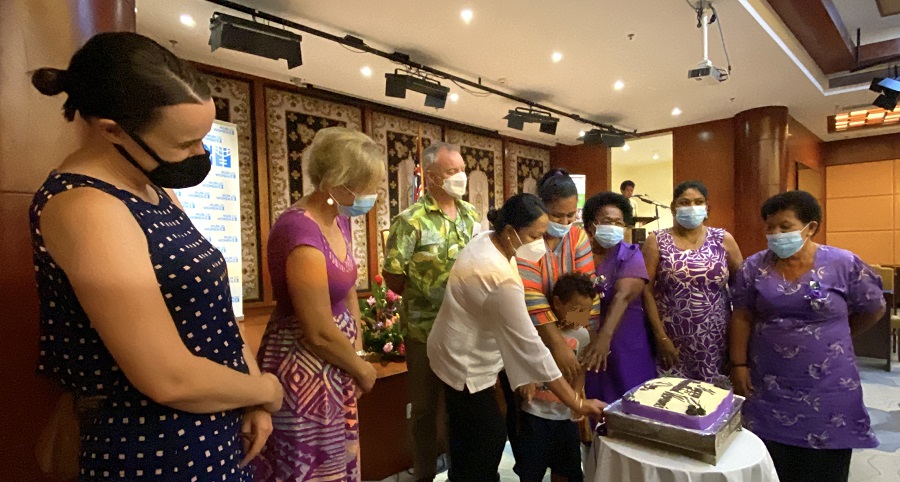Eight ID card machines and 13 lamination machines were provided to the Ministry of Local Government to help municipal councils identify vendors, and thereafter have some control over the provision of stalls to ensure vendors are operating from spaces they have been assigned.
Minister for Local Government Premila Kumar said there have been instances where the same vendors operate numerous stalls or tables either within a subdivisional market or in a number of markets in different municipal councils including roadside stalls, thus depriving others such as farmer vendors who come in only on the weekends a space to sell their produce.
“Farmers were very upset when they come into sell on Saturday, they do not get space to sell and we were trying to understand why is that, and we found that the stallholders, on a Saturday and Friday, they also rush out and occupy spaces for farmer vendors, so they get two spots, one is their own stall and the other is outside,” Kumar said during the handover of the machines at the Civic Centre in Suva today.
“And people who are walking around, they will think there are so many vendors here selling, there is congestion, and particularly with the pandemic we need to be mindful of it, but the reality is that from one family, you find four or five people selling inside as well as outside and that has created the congestion. Today’s handover will help the councils understand who really their clients are and if we just make it mandatory that everyone carries an ID card, we will be able to analyse that and control the number of vendors in the market. We also found that in the market, we have vendors who have multiple stalls, for example, they have stalls in Nausori, Laqere, Suva and then they also put people on the roadside to sell. This is the same vendor. We need to control this, and create a level playing field.”
Suva Market Vendors Association president Sophie Talei echoed the same sentiments saying the provision of ID cards will help the council identify vendors, particularly casual vendors who can then benefit from initiatives that their permanent counterparts enjoy.
“For us, we provide ID for our members. The machines are provided for the council so that casual vendors can benefit, for those who do not want to pay for their subs they will benefit from it, it will identify whether they are casual vendors or permanent vendors. There are also other things like the funds provided by the government, they will need recommendations from the council so if these vendors have the IDs they also qualify to receive them. The council will know who the vendors are through their IDs.”
One such initiative, Talei says is the waiver of table or stall fees, an intervention she says has ensured that permanent vendors can put aside as earnings what they would have paid for stall fees especially when they have had to contend with decreased sales because customers are mostly buying from casual vendors stationed outside the market.
“It will end in July this year. We will start paying for it from this year. Some people say $5.75 is a small amount of money, but we have really benefitted a lot from it. We are not worried about paying stall fees. We have a lot of competition. Those selling outside the market are the ones doing the business. The people inside are the ones who suffer because fewer customers are coming in.”
The handover is part of an ongoing partnership between the Ministry of Local Government and the Markets for Change Project (M4C). The M4C is implemented by UN Women in partnership with the United Nations Development Programme and the governments of Australia, Canada, and New Zealand.
Under the M4C Project, UN Women has supported the upgrade of the Namaka Municipal Market and in the building of the new Rakiraki Municipal Market. There are three other major infrastructure projects assisted by UNWomen, which are currently in progress. These are the Levuka Market, Savusavu Market, and Nausori Women’s Accommodation. In addition, the provision of tents to the vendors in certain Municipal Markets has enabled these vendors to sell from a shade
and not under the scorching heat.









